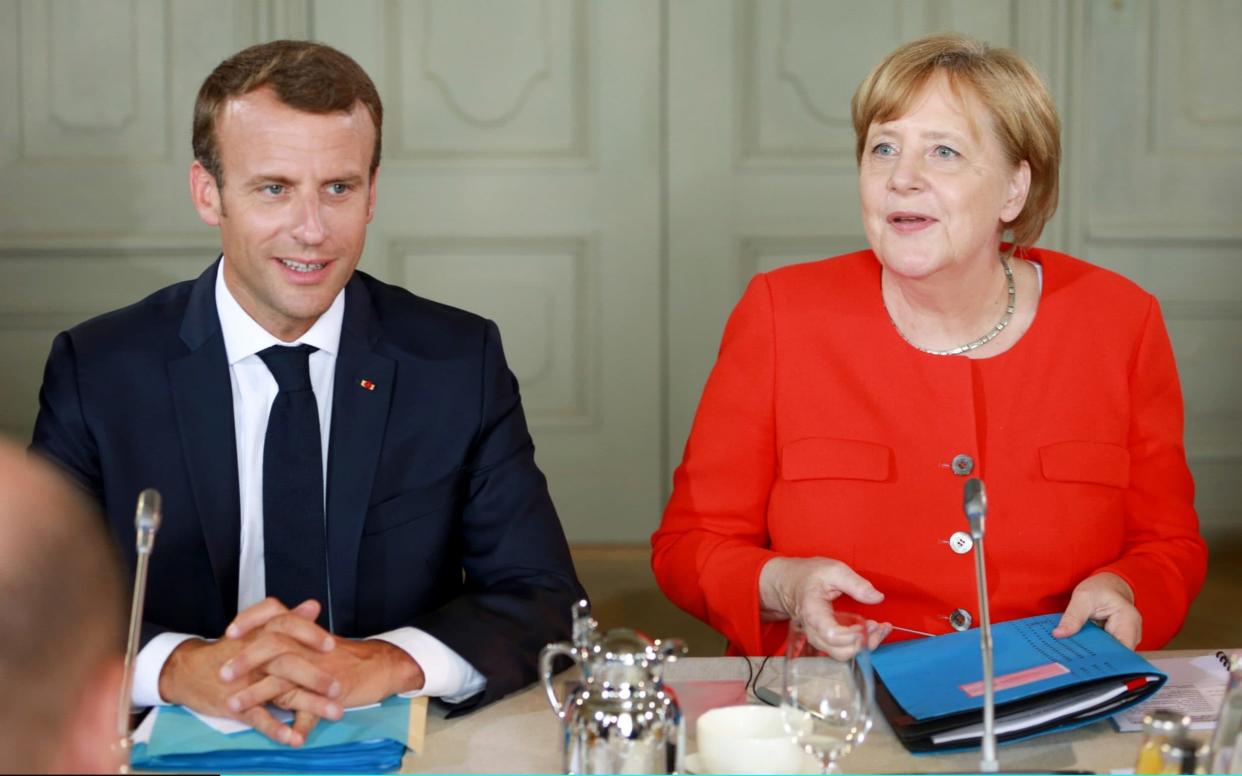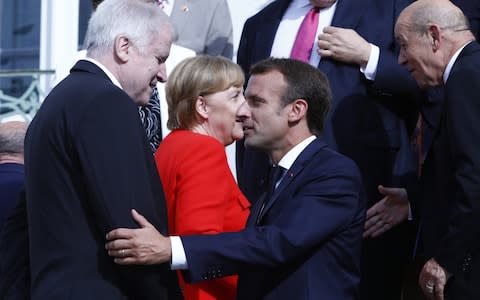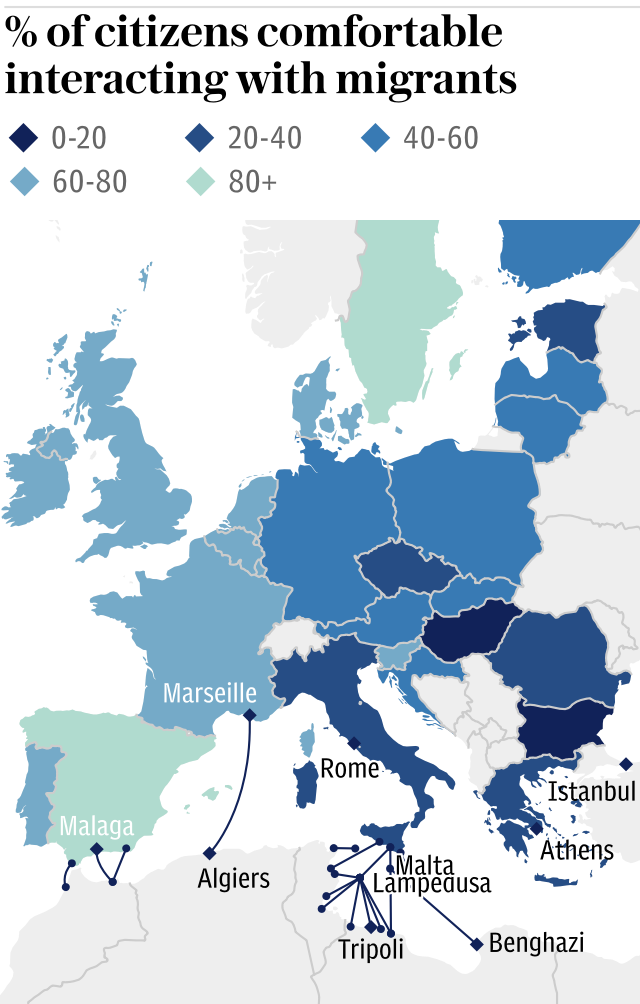Macron and Merkel put on united front as they move to resolve EU problems, but deep divisions remain

Angela Merkel and Emmanuel Macron moved to tackle the European Union's growing list of problems on Tuesday calling for a limited common Eurozone budget by 2021, a beefed-up border police force to deal with migrants and deeper defence co-operation.
In a joint declaration in the German town of Meseberg, the French and German leaders also pledged to sign a new Elysee Treaty by the end of the year to strengthen the 1963 agreement that ended centuries of hostility between their two countries.
But analysts warned that behind the carefully staged show of unity, deep differences remain between them over the future direction of Europe.
“A new chapter opened for the Europe Union and for Franco-German cooperation today,” Mrs Merkel said.
“This summit comes at a moment of truth for Europe, for each of the nations of our continent,” Mr Macron added. “Today there is a real choice of society, even civilisation that is up for discussion.”
The meeting came after months of back-channel discussions in which both sides tried to close the gap between their divergent visions for the European Union and the Eurozone, with both leaders making some concessions to the other.

The French president came to Mrs Merkel’s aid as she battles open revolt within her own government over migrant policy, pledging French support for a new common approach to asylum cases, a strengthened border force, and migrant reception centres in Libya.
Mrs Merkel responded by dropping German resistance to any form of common Eurozone budget, although analysts pointed out that no figure has been agreed, with France pushing for a much larger sum than Germany is ready to approve.
Mrs Merkel also blocked Mr Macron’s call for a Eurozone finance minister, insisting the budget remain controlled by national governments through existing EU structures.
“The French have conceded a huge amount of ground and have little or nothing to show for it in return,” Mujtaba Rahman, the head of Europe practice at the Eurasia Group consultancy, said.
“This is a very Germanic looking reform agenda, despite attempts by Berlin to dress this up as a broad consensus and Paris to present it as a win. This is a victory for northern European hardliners.”
Mr Macron was said to be determined to present a united front and shore up Mrs Merkel against her domestic rivals, fearing a political crisis in Germany could wreck his hopes of securing meaningful reform.
While the Meseburg Declaration issued on Tuesday declared common goals, much of the detail was left to be agreed later.

The two leaders agreed to transform the current ESM Euro rescue fund into a European Monetary Fund with its own budget to help support struggling Eurozone economies, to set up a backstop for European banks and to harmonize French and German corporate tax.
On the migrant issues, they agreed to back Austria’s calls to strengthen the EU’s external borders, and to transform the bloc’s Frontex border agency into a “European border police” with more funding.
Mrs Merkel said they had agreed to push for a new common asylum system under which cases could be decided in any Schengen state, not just the country where migrants first arrive - in a concession to frontline states like Greece and Italy.
They agreed to strengthen EU foreign policy by calling for an end to national vetos and the need for unanimity, and to push for a common defence policy.
Mrs Merkel spoke of a “common strategy, common weapons system, and common arsenal” for the EU’s different militaries, but most experts agree any such step is years away from being possible.
They also agreed to pursue reform of EU institutions by cutting the number of European commissioners and introducing cross-border lists of candidates in future European elections.
Mr Macron portrayed the debate over the future of the EU as one between “those like to say that this Europe is ripe for unravelling” and those who want “to make Europe move forward”.

 Yahoo News
Yahoo News 
